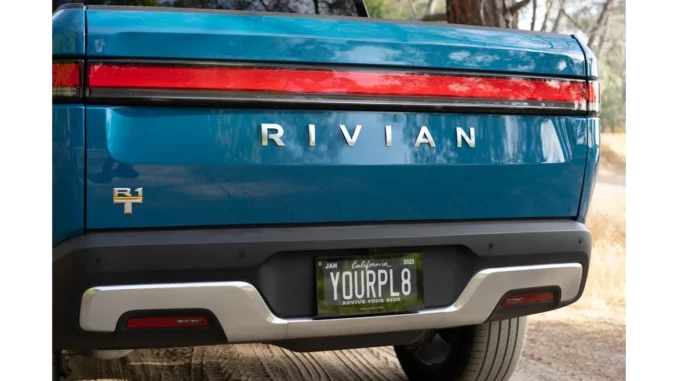
Summary
Rivian R2’s Revolutionary Battery Partnership with LG Energy Solutions to Re-Shape EV Market
In a landmark development within the electric vehicle (EV) sector, Rivian, the American automaker, has announced a collaboration with LG Energy Solutions to equip its forthcoming R2 electric SUV with a pioneering battery. This battery, boasting a storage capacity sixfold greater than current industry standards, marks a significant technological advancement poised to redefine energy storage and efficiency in EVs. “The R2 is set to elevate expectations in the market with its unparalleled range and performance,” stated Mark Thompson, Rivian’s Chief Innovation Officer.
Main Article
The electric vehicle industry is witnessing rapid advancements, with Rivian’s latest announcement set to transform the landscape. The Rivian R2, an eagerly anticipated electric SUV, is gearing up to make headlines by integrating the 4695 cylindrical battery developed by LG Energy Solutions. This innovation is expected to usher in a new era of energy storage capabilities.
The Engineering Marvel of the 4695 Battery
At the core of this breakthrough is LG Energy Solutions’ 4695 cylindrical battery, an engineering feat designed to dramatically improve energy storage in electric vehicles. The “4695” designation reflects its dimensions—46 millimeters in diameter and 95 millimeters in height. This larger size translates to a substantial increase in capacity compared to the prevalent 2170 cylindrical batteries, offering a longer driving range while ensuring safety, a paramount aspect in EV design.
Strategic Alignment with Economic Policies
The Rivian-LG partnership extends beyond a mere business venture. It strategically aligns with the Biden administration’s Inflation Reduction Act (IRA), which promotes domestic production of EV components. Under this legislation, vehicles meeting specific criteria qualify for a $7,500 tax incentive. By manufacturing batteries at LG’s Arizona facility, Rivian not only avails these incentives but also contributes to bolstering the U.S. manufacturing landscape. This move signifies Rivian’s commitment to supporting domestic industry and aligns with broader economic and environmental goals.
Setting New Industry Standards
The introduction of the 4695 battery is poised to set a new benchmark in the EV industry. This development could compel other manufacturers to enhance their own battery technologies, fostering a competitive environment crucial for the sustained advancement of electric vehicles. Enhanced battery performance, coupled with cost-efficiency and environmental benefits, positions Rivian’s R2 to challenge competitors like Tesla’s Model Y and Hyundai’s Ioniq 5.
Aiming for Mass-Market Accessibility
Rivian’s strategic move to incorporate the 4695 battery aims to position the R2 as an affordable, mass-market electric SUV. Priced at $45,000, the R2 is designed to attract a wider consumer base, offering an estimated range of over 300 miles and an impressive acceleration capability of 0 to 60 mph in under 3 seconds. Additionally, the R2 boasts advanced automated driving features and innovative design elements, such as a rear window that folds down to create an open-air experience, further enhancing its market appeal.
Detailed Analysis
Batteries remain the cornerstone of electric vehicles, and advancements in this domain are critical in reducing transportation’s environmental footprint. The partnership between Rivian and LG Energy Solutions underlines the significance of collaborative efforts in driving technological progress. As the global community shifts towards sustainable transportation solutions, the development of efficient, long-lasting batteries is pivotal. This collaboration not only bolsters the capabilities of the Rivian R2 but also exemplifies the potential for partnerships to achieve ambitious sustainability targets.
Further Development
The industry can anticipate further developments stemming from Rivian and LG Energy Solutions’ collaboration. As the R2’s launch approaches, stakeholders will be monitoring its market reception and performance metrics closely. Additionally, the implications for future battery technology innovations remain significant, potentially influencing next-generation EV designs. With the automotive sector in flux, continued coverage and analysis will explore the broader impacts of such partnerships on market dynamics and sustainability efforts. Stay tuned for more insights and updates on this evolving story.

